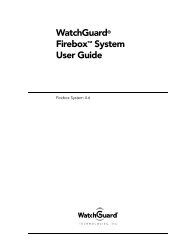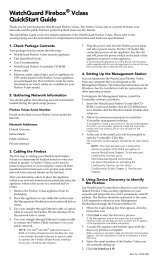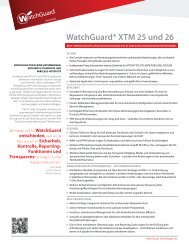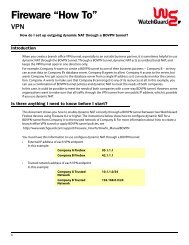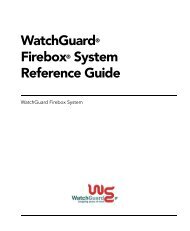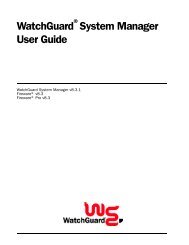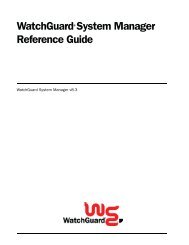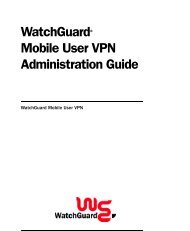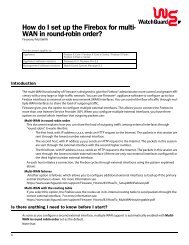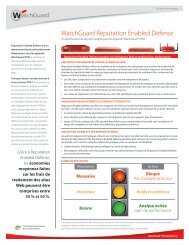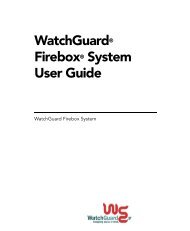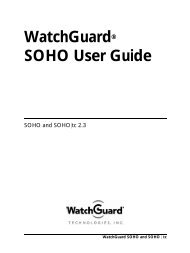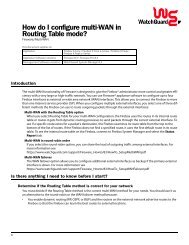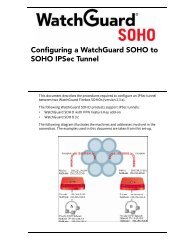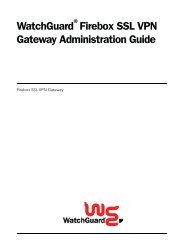CLI Guide - WatchGuard Technologies
CLI Guide - WatchGuard Technologies
CLI Guide - WatchGuard Technologies
Create successful ePaper yourself
Turn your PDF publications into a flip-book with our unique Google optimized e-Paper software.
CHAPTER 1: Using the Command Line Interface<br />
quotation marks; however, you do<br />
not need to type quotes when<br />
entering a text string.<br />
For example, we might say: set a<br />
user_profile name to<br />
“All_RAS_Users.” In this example,<br />
you could type your own user<br />
profile name (or string) in place of<br />
ALL_RAS_Users.<br />
You should enclose a string in<br />
quotes in instances where the text<br />
entry includes spaces. For example,<br />
if entering a name like “Joan<br />
Smith,” with a space between the<br />
first and last name, you should<br />
enclose this entry in quotations to<br />
preserve it as a single entity.<br />
For Example WG(config)#address -group<br />
exec_staff<br />
WG(config)#address -group<br />
"exec staff"<br />
Carriage returns Carriage returns are Enter key<br />
presses, and are represented by the<br />
or notation.<br />
Command examples may omit this<br />
notation for the sake of brevity.<br />
Letter spaces Space characters (entered by<br />
pressing the Space bar on the<br />
keyboard) are represented in a few<br />
instances in this <strong>Guide</strong> by the <br />
notation. In most cases, however,<br />
spaces are simply represented by<br />
actual spaces. For example, in:<br />
WG(config)#address -group<br />
exec_staff<br />
4 <strong>WatchGuard</strong> Vclass 5.1



